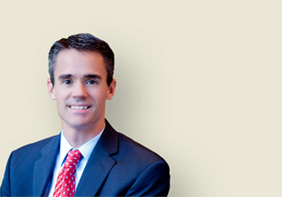You (Get To) Choose Which Game To Play
We hope that you and yours are doing well as we swing into the holiday season. In a world both wondrous and sometimes weird, you may have mixed emotions about the days, months, and the new year ahead of us – an intermingling of fear and optimism, hope and hesitation, possibly even sorrow and joy. And you may have noticed that the markets have been swinging through every one of these same emotions as well, in real, seemingly manic time.
For capital markets, that’s perfectly alright. In fact, it’s precisely what they’re supposed to be doing. Out of the seeming chaos, an efficient method arises for setting and re-setting relatively fair pricing. It’s exactly how tens of millions of trades occur every day, at lightning speed, around the world. If prices instead grew sluggish or stagnant, so too would our ability to make money in the markets.

That said, while apparent mayhem may make perfect sense for moving markets, it’s not how you need to live when thinking about your portfolio. As an individual investor, you get to choose which game to play. > SEE MORE

Posted by:
Waypoint Wealth Management
Active Management’s Surprising Survival
While this article does get a little into the technical side of investing this month, its theme is at the core of our philosophy at Waypoint so we think it’s a good reminder to investors and clients. It involves the idea (myth, really) that investors can consistently create “alpha” or out-performance by making changes to their investments (or hiring someone to do so) based on their current opinion with where we are economically or politically or historically. Recently, our Director of Research with the BAM Alliance Larry Swedroe wrote (again) about the truths and myths of “active” investment management and the attempt to outperform:
It’s truly an amazing paradox. According to the Thomson Reuters Lipper second-quarter 2018 snapshot of U.S. mutual funds and exchange-traded products, active funds of all kinds, including money market funds, manage about $16.4 trillion.
That’s more than 2 1/2 times the $6 trillion managed by passive funds and ETFs. That’s also despite the overwhelming evidence that active management is a loser’s game (one that’s possible to win, but with odds of doing so that are so poor, the winning strategy is not to play). > SEE MORE

Posted by:
The BAM Alliance
What Is The “Yield Curve”?
The yield curve is flattening (or growing steeper)! … Yield curve spreads are widening (or narrowing)! … The yield curve has inverted (or normalized)!
Headline-grabbing yield curve commentary somehow sounds important, doesn’t it? But what is a “yield curve” to begin with, and what does it have to do with you and your investments?


Posted by:
Waypoint Wealth Management
What’s THE Most Important Thing You Can Do To Prepare For Retirement?
I was thinking about this question while reading an article a client sent to me. You can find the write-up here, and it’s a helpful “countdown to retirement” with many tips to consider as you approach retirement. As I looked through the list and thought about covering these issues with our own clients over the years, the question came to mind: what is the most important financial planning step you can take to feel great about your retirement plan?

It’s really a tough question since there are a lot of important issues to consider when “taking the leap” away from a career that you’ve had for so many years. Topics such as health insurance, do you have enough saved, are you invested properly, Social Security timing and others are obviously important to explore. There’s also the softer part of the equation: how will you spend and enjoy your time? Should you still work? How will you miss the social aspect of working and contributing?
But if I were forced to answer, what would I say is the most important question? That’s when I realized it’s the one that I have been recommending most lately when helping someone plan for retirement. It’s this simple question: how much do you need to live on (and how sure are you of that?)? > SEE MORE

Posted by:
Pete Dixon, CFP®
Partner and Advisor
Rate Fears And Your Fixed Income Strategy
What a difference a decade makes. It’s hard to believe it’s been approximately ten years since the “Great Recession” began. By year-end 2008, the U.S. Federal Reserve (the Fed) had lowered the target federal funds rate to near-zero and went on an aggressive easing campaign, hoping to resuscitate the economy with a booster shot of lending, borrowing and spending dollars.
Some would say the economic recovery that followed was a result of these Fed initiatives. More likely, there were a number of contributing factors including technology and innovation. Either way, the Fed has begun to reverse course, restoring its policies and targets closer to historical “norms” through quantitative tightening and gradually rising rates.

Here’s the $64,000 question: as an investor, what can or should you do to prepare if rates do continue to rise? For that matter, what can or should you do if they don’t? As usual, our advice may not be as action-packed as you might crave, but there are a number of solid, evidence-based strategies that stand the test of time. > SEE MORE

Posted by:










